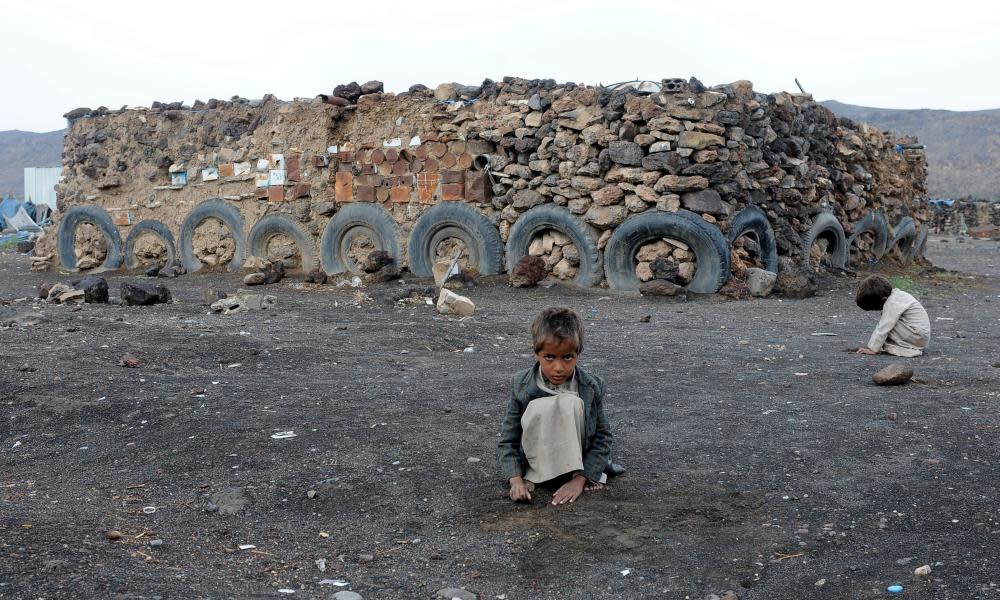I’m proud I championed aid. But we must rethink how we do it

Cutting extreme poverty in half is one of the greatest achievements of our lifetimes. Vaccinations have saved seven million lives since the turn of the century; over two billion more people been given have access to clean drinking water; 43 million more children go to school; HIV-related deaths have nearly halved in just 15 years. Be in no doubt: market economics, supported by overseas aid, works.
But with nearly 900 million people still living on less than $2 a day, the battle against global poverty isn’t over. And, while growth in countries such as China and India is lifting millions out of poverty, in too many of the world’s poorest countries, progress is completely stuck.
A great many of these countries – such as South Sudan, Somalia, Yemen, Democratic Republic of the Congo, Libya, Syria and Afghanistan – are what are called “fragile states”. Blighted by conflict and riven with corruption, their governments lack the capacity to deliver the most basic things: jobs, public services and security. Lacking in legitimacy, trying – and frequently failing – to serve deeply divided societies, their institutions struggle to win public support and respect.
Simple steps that bring jobs and security matter more than, for instance, setting targets for tackling climate change
And their problems radiate around the world. After all, “state fragility” is often what causes migrants to risk everything to seek a better life. Terror training camps thrive in broken or lawless countries.
What’s more, the problem is becoming more serious. Estimates suggest that by 2030, half of the world’s poor will live in fragile states. We need to be frank: the global goal to eradicate extreme poverty within the next 12 years will never be met unless this problem is addressed.
As prime minister, I ensured the UK was the first G7 country to meet the target to spend 0.7% of its income on aid. I am proud of that. But I am equally proud that we responded to this shifting landscape, increasing the proportion of aid going to fragile states from 30% to 50%.
That is why I put issues like sharing tax information and transparency about ownership at the top of the global agenda. The inability to collect taxes or to stop natural resources being stolen and hidden in rich countries – these are the things that stop people escaping the poverty trap. As I’ve put it before: geography is not destiny, governance is.
For the past year I have been chairing the first ever Commission on State Fragility, Growth and Development, a joint venture between Oxford University and the London School of Economics. We have probed issues that many policymakers have previously avoided. And today, the commission publishes its findings.
They make for challenging reading. The sad fact is that some of these countries have had decades of aid yet remain as poor as they ever were – some poorer. We have to accept we have often ended up throwing good money after bad. But that is not a reason to stop aid; it is a reason to change the way we do aid.
The report calls for a new type of realism in the approach towards fragile states. For too long, expectations have been set too high. Instead, simple steps that bring jobs and security matter more than, for instance, setting new national targets for tackling inequality and climate change.
It states that the countries concerned must be able to set their own priorities. Again, we have erred in the past. In an effort to help poor countries, donor governments and agencies have imposed priorities on them. However, the aim of international assistance should be to help fragile states to build legitimate and capable institutions, rather than endlessly undermine them with long lists of unachievable goals imposed from outside.
Perhaps the most controversial finding is on our approach towards elections. It concludes that the building blocks of democracy – the rule of law, checks and balances, the protection of minorities – matter more than the actual act of holding an election, important though that seminal moment of democracy can be.
Even more significantly, the report argues that the rush to multi-party elections is often a mistake; far better to take time in resolving disputes and conflicts, forging a genuine national consensus on power sharing, and putting in place checks and balances that may help to prevent another slide towards violence and state failure.
Despite the obvious challenges of helping fragile states, I am confident for the future. The world is richer than ever. We have transformational technology at our fingertips that can help cut out corruption and deliver aid more effectively. We’ve seen examples where reconciliation and peace processes have genuinely worked. Look at Singapore, Rwanda, Colombia – they show that countries can escape the fragility trap. I am determined that, with the right approach, many more will too.
• David Cameron is a former prime minister and leader of the Conservative Party

 Yahoo News
Yahoo News 
